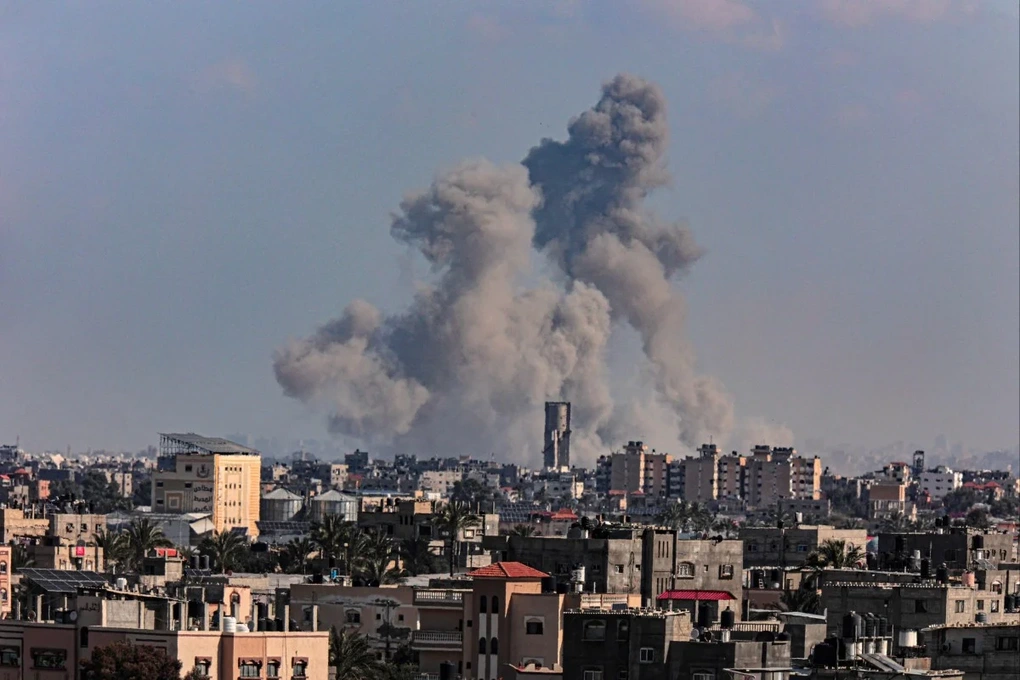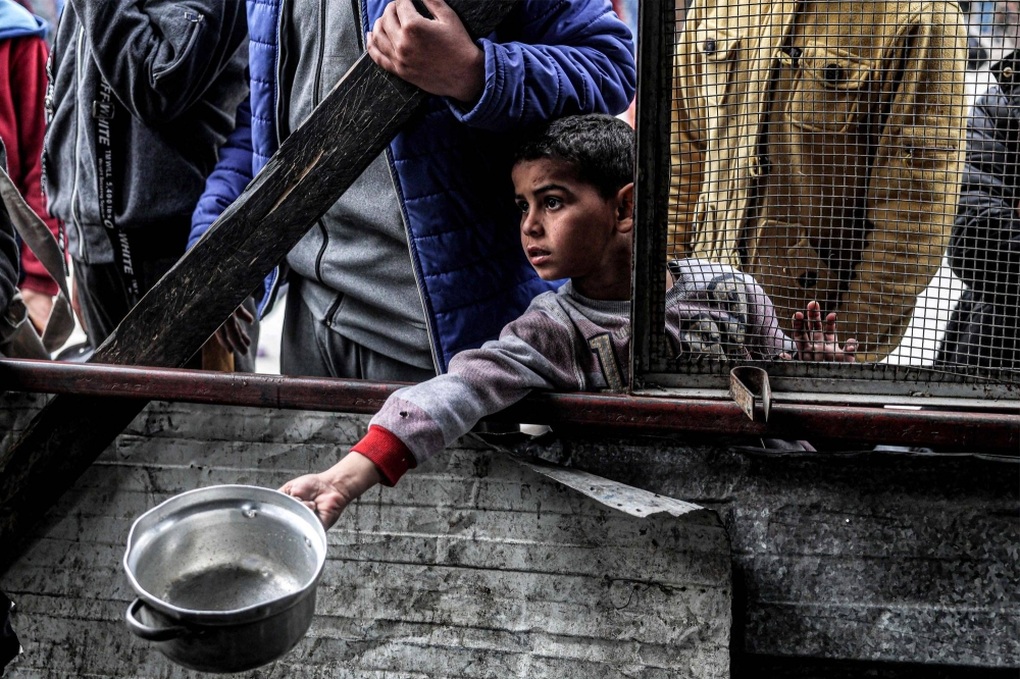Ramadan has arrived, the Israel-Gaza war has not ended yet
Palestinians began fasting during the holy month of Ramadan on March 11, but ceasefire negotiations remain deadlocked, and hunger is getting worse across the Gaza Strip. The five-month war between Israel and Hamas shows no signs of abating as Tel Aviv continues to launch fierce air strikes against the Gaza Strip.
The five-month war between Israel and Hamas shows no signs of abating as Tel Aviv continues to launch fierce air strikes against the Gaza Strip.
Prayers were held outside the rubble of destroyed buildings late on March 10. Some people hung fairy lights and decorations in crowded tents, and a video from a United Nations shelter at a school showed children dancing and spitting foam as a man with a megaphone sang.
But there is little to celebrate after five months of war that has left more than 30,000 Palestinians dead and reduced much of Gaza to rubble. Families often broke their daily fast with holiday feasts, but even when food was available, there was little canned food and prices were high.
The United States, Qatar and Egypt had hoped to reach a ceasefire before the Palestinians' usually joyous dawn-to-dusk fasting month. But negotiations stalled last week.
Hamas is demanding guarantees that any such agreement will include a cessation of hostilities while Israeli Prime Minister Benjamin Netanyahu has vowed to continue the offensive until Hamas releases all remaining hostages and "complete victory" over this military force.
Fighting in Gaza has seriously affected about 80% of the population in this strip of land, forcing 2.3 million people to leave their homes and pushing hundreds of thousands to the brink of famine.
Health officials say at least 20 people, most of them children, have died of malnutrition and dehydration in northern Gaza. Meanwhile, Israel announced it would expand its attack to the southern city of Rafah, where half of Gaza's population is seeking refuge but does not know where to go to escape the onslaught.
US President Joe Biden once stated that attacking Rafah would be a "red line" for him, but Washington will continue to provide military aid to Tel Aviv. Mr. Biden admitted in his annual Ramadan message that the holy month had come "at a time of great pain."
"As Muslims gather around the world in the coming days and weeks to fast, the suffering of the Palestinian people will be on many people's minds. That's what comes to mind first," the leader said. America said.
The United States and other countries have begun airdrops of aid in recent days, but humanitarian groups say such efforts are both costly and insufficient and less effective.
The US military has also begun shipping equipment to build a sea bridge to deliver aid, but it may be several weeks before it becomes operational.
Israel is accused of obstructing humanitarian aid to Gaza
Anti-poverty charity Oxfam accused Israel of deliberately blocking the delivery of aid into Gaza, violating international humanitarian law. In a report published on March 18, the non-governmental organization Oxfam said that Israel continuously "systematically and intentionally prevents and undermines all international humanitarian activities of significant scale" in Gaza.
In a report published on March 18, the non-governmental organization Oxfam said that Israel continuously "systematically and intentionally prevents and undermines all international humanitarian activities of significant scale" in Gaza.
The report said that Israel ignored an order from the International Court of Justice (ICJ) in January requiring it to increase aid in Gaza, as well as failed to fulfill its obligation to protect people on land under its control. .
The ICJ order should have shocked Israeli leaders and changed their minds, but since then the situation in Gaza has actually gotten worse," Oxfam Director for the Middle East and North Africa, Ms. Sally Abi Khalil said. Oxfam said inspection regulations were "so ineffective that nothing could be justified" that had caused aid trucks arriving in Gaza to wait an average of 20 days.
They say Israeli authorities arbitrarily reject "dual-use" items - a term for civilian goods that can also be used for military purposes such as backup generators and flashlights. Oxfam said: "The list of rejected items is extensive and constantly changing
The report gives an example of one time Israel rejected water bags and water testing kits in an Oxfam shipment but did not give a reason. Only then did Israel allow them to enter Gaza. Oxfam also noted that in February 2,874 trucks entered Gaza, "20% of the daily average" before the conflict erupted following the Hamas attack on October 7, 2023.
Israel has not spoken out about Oxfam's report, but the country has always defended its policy in pursuing the goal of destroying Hamas. Tel Aviv has often rejected reports by the United Nations and NGOs that the cumbersome inspection process is hindering food and essential supplies from entering Gaza.











![[LIVE] Engage2Earn: Veterans Affairs Labor repairs](https://cdn.bulbapp.io/frontend/images/1cbacfad-83d7-45aa-8b66-bde121dd44af/1)










